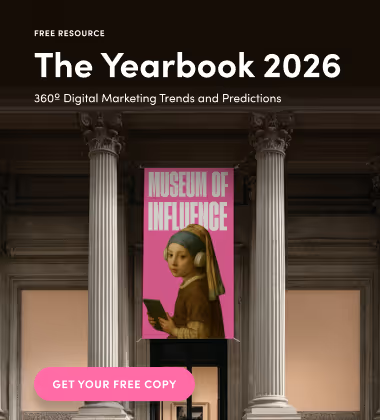Starting a career in marketing requires more than enthusiasm; it demands structure, persistence, and the right mix of academic preparation and practice. Students often wonder which skills to prioritize, which classes to focus on, and how to make their coursework translate into employable expertise.
The challenge is balancing day-to-day assignments with long-term goals. One practical approach is to lean on available resources. Many students rely on guides, mentors, and a college paper writing service, like paperwriter.com, when deadlines stack up and research projects require extra time.
This frees them to focus on the deeper aspects of learning, such as presentations, portfolio-building, and internships. The following roadmap breaks down key areas that help students move steadily toward a marketing career.
Speech topics for students
Marketing is about more than ads and numbers; at its core, it is about communication. When students work on their public speaking skills, they get better at expressing their ideas confidently. This is super helpful in client meetings, presentations, and networking events.
Why practice speeches matter
Practicing speeches does more than prepare students for the stage; it strengthens the kind of communication that marketing careers depend on. Each time a student organizes an argument for an audience, they learn to distill complex information into clear, persuasive points. That habit carries over into presentations for potential clients, job interviews, and even quick team meetings.
Public speaking also sharpens listening skills, since strong delivery is inseparable from audience awareness. The more students practice, the less nervous they feel in high-pressure situations. This helps them stand out in classrooms and professional networking events.
Suggested topics for practice
- Emerging trends in digital marketing. Analyze how TikTok, Instagram, and other platforms redefine branding to hone digital marketing skills.
- Sustainability in consumer choices. Explore how eco-conscious marketing appeals to Gen Z.
- Cultural branding across borders. Examine how global brands adapt campaigns in different countries.
- Ethical persuasion in advertising. Debate how far companies can go before messaging becomes misleading.
- The psychology of color in ads. Show how subtle design choices influence buying behavior.
By rotating through topics like these, students practice delivery and deepen their knowledge of the field. Students who excel in presentations tend to perform better in group projects and leadership, essential for marketing careers.

Image source: Pexels
Professional writing skills shape marketing careers
Writing is the backbone of modern marketing. From composing concise ad copy to drafting a 20-page campaign strategy, professional writing remains one of the most in-demand skills. Students can begin developing this talent long before they graduate and look for jobs in marketing.
Core elements of professional writing
The same confidence that grows from speech practice is reinforced through writing, another pillar of marketing education. Professional writing is not just about putting words on a page but about delivering ideas with clarity, creativity, and consistency. When students learn to cut through jargon, they produce messages that resonate across diverse audiences.
Storytelling techniques add spark to otherwise ordinary text, turning data or product descriptions into narratives that persuade. Consistency ties it all together, ensuring that whether it’s a social media caption or a formal report, the voice of the brand feels coherent. Writing connects research and presentation, aiding both academic and professional marketing careers.
A 5-step method for students
- Define the purpose: inform, persuade, or inspire action.
- Thorough research is essential for creative writing.
- Start with a hook, expand logically, and end with a call to action.
- Revise for tone and accuracy. Professional writing leaves no room for careless errors.
- Seek peer or mentor feedback. External input helps refine style and avoid blind spots.
Many students enhance their writing through campus newsletters, blogs, and volunteering, gaining real-world experience for portfolios.
Essential marketing topics to explore
Students should focus on informative subjects that enhance practical skills and prepare them for future marketing conversations.
Areas to explore
- Consumer psychology: Understand what motivates buying decisions.
- Analytics and data interpretation: Learn how numbers guide campaign strategies.
- Digital transformation: Track the impact of automation, AI, and personalization tools.
- Rebranding case studies: Analyze companies that successfully shifted public perception.
- Cross-media integration: Study how campaigns connect TV, social media, and in-person events.
How to use informative topics
Informative topics take these skills further by offering content to explore, write about, and present. Instead of treating them as abstract concepts, students can weave them into every layer of their learning. A class presentation on consumer psychology enhances speaking and writing skills, while an internship in digital analytics aids future interviews.
Even informal conversations at networking events benefit when students have a bank of fresh insights to draw upon. The more they use these topics as anchors, the easier it becomes to demonstrate expertise across settings, proving that research and practice can coexist in one seamless learning process.
Comparison table: Speech vs. writing vs. informative topics
Building a marketing career roadmap
When speeches, writing, and informative topics are connected, they form the outline of a career roadmap rather than a set of disconnected tasks. Students begin by clarifying long-term goals (advertising, branding, or analytics) and then use coursework to build a foundation.
Each class, project, or extracurricular activity becomes a stepping stone: speeches improve confidence, writing refines clarity, and research topics deepen industry knowledge. Outside the classroom, internships and student organizations reinforce these skills while producing tangible portfolio material. The roadmap evolves from meeting requirements to creating experiences that transition into marketing roles.



